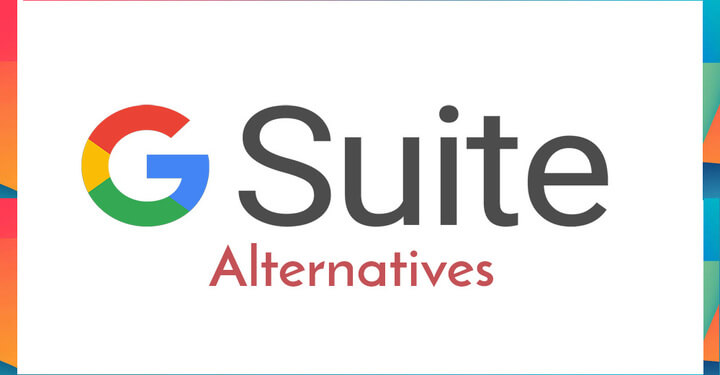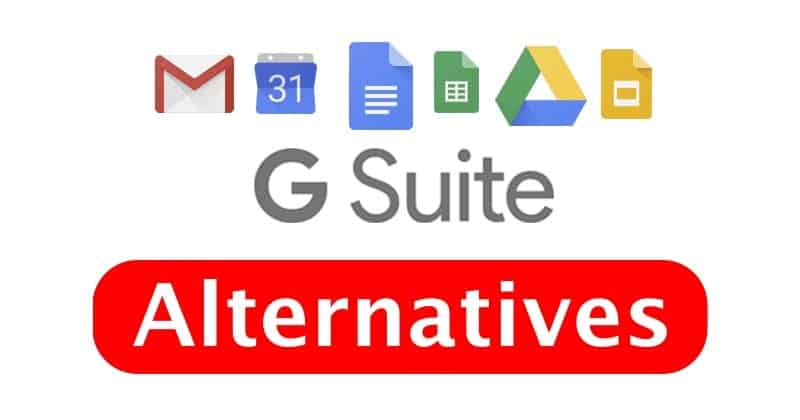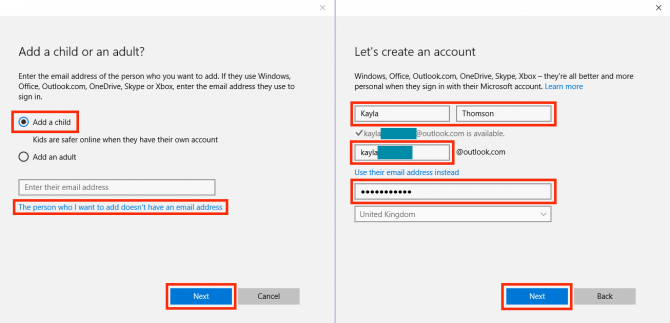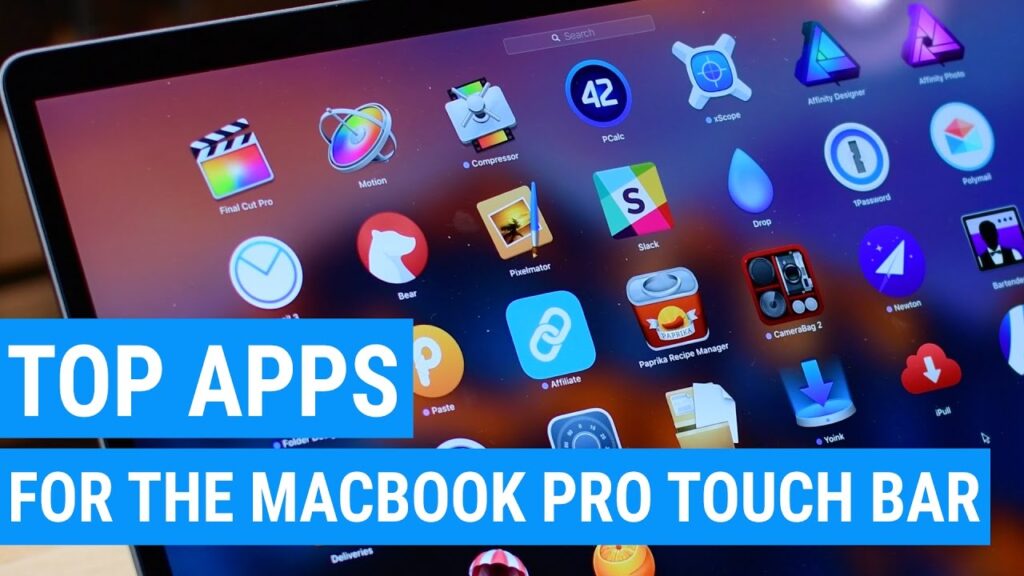
G Suite offers a comprehensive suite of tools and services designed to enhance team collaboration and productivity. However, for many organizations, the subscription cost proves prohibitive. Additionally, some prefer Microsoft Office over Google Docs. As a result, businesses of all sizes are seeking alternatives to G Suite that offer comparable features without compromise. To address this need, we’ve compiled a list of the 8 best G Suite alternatives below. These services are predominantly collaborative and equipped with essential productivity features. Without further ado, let’s explore the options and identify the ideal solution for your organization.
Explore the Best G Suite Alternatives (2020)
Here, we’ve listed 8 top alternatives to G Suite with similar features. However, if you’re specifically looking for a G Suite email alternative, two options are provided at the end. Feel free to review the list and select the one that best suits your needs. Without further delay, let’s dive into the list.
1. Office 365 Business
If you seek superior G Suite alternatives with popular features, Microsoft’s Office 365 is your best choice. It’s the most comprehensive office suite, equipped with all necessary tools and services for your business. Firstly, create personalized business emails with your own domain name to effectively promote your business during communications with clients or consumers. Secondly, access all Microsoft Office apps, online and offline, allowing collaborative real-time editing similar to Google Docs. Notably, you can also access Office documents via browser, eliminating the need for offline app installations.
For communication, Outlook handles emails, while Skype facilitates chatting and video calls. Essentially, Office 365 serves as a complete replacement for Google’s Gmail, Chat, and Meet apps. Moreover, gain 1TB of OneDrive cloud storage with the Business plan, enabling seamless file sharing among team members, akin to Google Docs. Furthermore, advanced security protections are paramount. Microsoft offers cutting-edge Advanced Threat Protection for Office 365, mitigating data theft via location, app, and on-device security protocols. Additionally, the business plan includes 24/7 chat and call support from Microsoft. In conclusion, Office 365 Business stands out as an exceptional alternative to G Suite.
Visit: Office 365 Business (Starts at $5/month)
2. Zoho Workplace
Zoho offers a compelling alternative to G Suite for small and medium-sized enterprises. Amidst stiff competition, Zoho distinguishes itself with a suite of robust apps and services. Notably, it enables the creation of custom domain names for business emails, fostering a professional image. Additionally, Zoho facilitates document creation, spreadsheet management, and project conceptualization through its native apps. Like G Suite, all services are accessible online, allowing seamless collaboration among multiple users.
For communication, standalone apps like Mail, Connect, Showtime, and Meeting are available. Additionally, there’s a separate workplace named Cliq for effortless team collaboration. Cliq offers chat support, calendar scheduling, file sharing, and more. Each user in a team receives 30GB of cloud storage under the Standard plan. Alternatively, the Professional plan offers 100GB of storage space, albeit at a higher price. Zoho prioritizes security, employing Bullet-resistant walls to safeguard its servers against exploits and breaches.
My favorite aspect of Zoho Workspace is its provision of a limited free plan, ideal for small businesses hesitant to invest in a full suite of business applications. Clearly, Zoho offers comprehensive features that make it a compelling alternative to G Suite, and at a comparatively affordable price. If you’re considering transitioning away from Google and Microsoft, Zoho presents a strong option.
Check out: Zoho Workplace (Free, starting at $3/month)
3. GoDaddy Email and Office
GoDaddy, primarily a web hosting company, has expanded into productivity services, offering a new suite under its Email and Office program. With GoDaddy, you can create unlimited email addresses using your company domain. According to GoDaddy, 75% of customers respond positively to professional business emails, indicating the potential for business growth. Additionally, GoDaddy has partnered with Microsoft to integrate Office 365 apps, providing access to Word, Excel, PowerPoint, and more. Collaboration is facilitated through Office 365’s comment and collaboration feature.
The only con is the absence of instant messaging, relying solely on Outlook for email. However, the comment feature on Office 365 facilitates team communication. Additionally, you receive 1TB of OneDrive cloud storage for seamless file sharing with team members.
In terms of security, GoDaddy ensures robust protection for its web servers, extending to email and Office programs. Furthermore, dedicated 24/7 call support is available for issue resolution. Overall, GoDaddy presents a compelling alternative to G Suite, offering extensive email customization alongside the reliability of Microsoft Office.
Visit: GoDaddy Email and Office (Starts at $4.99/month)
4. Rackspace
Rackspace, another G Suite alternative, closely resembles GoDaddy’s service. Essentially, it offers email hosting alongside a suite of office apps in partnership with Microsoft. Office 365 integration with Rackspace ensures comprehensive productivity. Access Office 365 in the cloud for seamless group collaboration. With Microsoft Office handling content editing and collaboration, reliability is guaranteed. For business emails, multiple addresses can be created for users and enterprise wings such as sales, marketing, and support.

Aside from Outlook and Microsoft Exchange for team communication, remember, Rackspace does not offer OneDrive cloud storage. To utilize cloud storage, you must purchase a separate OneDrive subscription. Like other providers, Rackspace offers 24/7 customer support across all channels. In summary, for small businesses seeking affordable collaborative services, Rackspace presents a compelling alternative.
Visit: Rackspace (Free trial for 14 days, Premium plan starts at $2.99/month)
5. Samepage
Samepage offers collaborative services akin to G Suite, emphasizing content creation and seamless sharing. While lacking email hosting, it integrates with third-party email providers. Though not optimal, it facilitates team cohesion when email services are outsourced. Its suite includes text editors, presentation tools, calendar management, and more. Users can collaborate on documents effortlessly, with chat, video call, and comment features embedded within.
Samepage excels in seamless integration with your Dropbox or OneDrive, sparing you the need to transfer your storage. Simply link your cloud storage, and it’s instantly accessible. Moreover, it offers its own cloud storage for file storage and synchronization. Essentially, Samepage consolidates third-party services, facilitating collaborative teamwork. If you’re utilizing various services, Samepage serves as a unified portal.
Explore Samepage: (Free, Premium plan starting at $8/month)
6. Fastmail
Fastmail, though not a direct G Suite alternative, excels as a business email service. It offers reliable and secure email accounts for your company, ensuring a professional appearance. Notably, Fastmail prioritizes user privacy and doesn’t utilize your data for advertising or profiling.
In addition, Fastmail integrates calendar, contacts, and notes within its platform, streamlining your productivity. Notably, its advanced spam blocking technology efficiently organizes your inbox.
In conclusion, for business email accounts, Fastmail is an excellent choice. You’ll appreciate its reliability and privacy features.
Subscribe: Fastmail (Free trial for 30 days, plan starts at $3/month)
7. Proton Mail
Many seek G Suite alternatives to regain control of their information. For those valuing complete privacy, Proton Mail stands out. Developed by a Swiss company, it ensures data security with end-to-end email encryption, safeguarding emails from unauthorized access. Notably, the company refrains from retaining any user information, ensuring absolute privacy.
Proton Mail is open-source. Their code is open for scrutiny, validating their privacy claims. Additionally, they offer a free version ideal for trying out the service. However, note that free accounts don’t support personal domain names. To have your domain, opt for their paid plans. Despite its encryption, Proton Mail is user-friendly like any other provider. For enhanced security, choose Proton Mail.
Visit: Proton Mail (Free, paid plans start at €5.00/mo)
8. The Arrangers
The Arrangers is a flexible email service provider for business accounts. You can create unlimited business accounts, all scalable to match your company’s growth. As your company expands, you can add more email accounts without extra charges or bulk purchases. This reduces costs, enabling investment in superior collaboration platforms.
Similar to Fastmail, emails are completely private with advanced virus and spam protection. In terms of storage, you get 5GB dedicated only for emails and can attach up to 30MB of files. Apart from that, productivity tools like calendar, contacts, and tasks are integrated. To sum up, if you need a cheap email service provider with necessary safeguards, The Arrangers can be a great alternative to G Suite’s Gmail.
Enhance Productivity With G Suite Alternatives
That was our list of 8 top G Suite alternatives. G Suite is excellent for many enterprises, but its steep price makes it difficult for small companies to afford. In such cases, consider alternatives. From Office 365 to providers like Fastmail, all offer something unique at a much lower cost. In conclusion, I hope this article helped you find suitable G Suite alternatives. If you enjoyed them, comment below and share your choice.

Pritam Chopra is a seasoned IT professional and a passionate blogger hailing from the dynamic realm of technology. With an insatiable curiosity for all things tech-related, Pritam has dedicated himself to exploring and unraveling the intricacies of the digital world.



